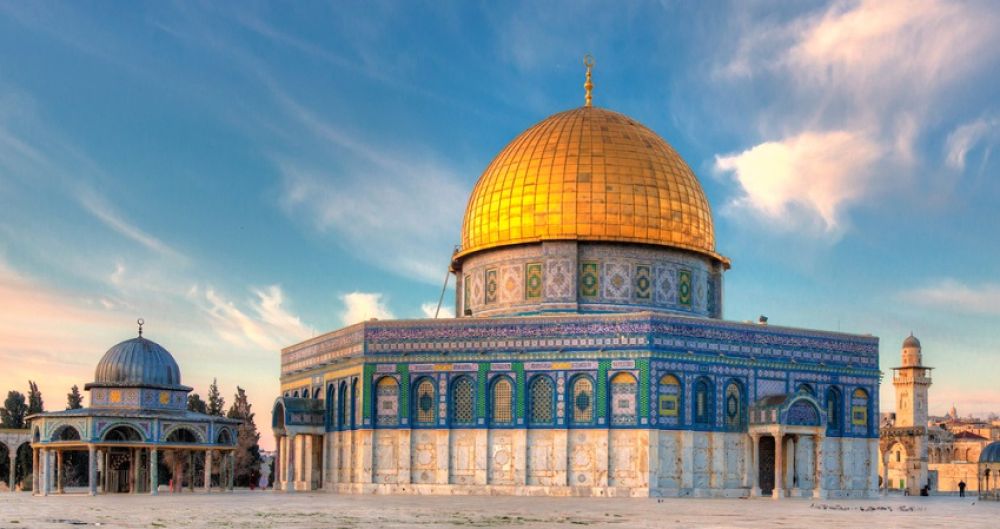

The Al-Aqsa Mosque, located in the Old City of Jerusalem, is a site of immense religious significance for Muslims worldwide. Also known as "Bayt al-Maqdis" or "Al-Haram al-Sharif" (The Noble Sanctuary), it is considered the third holiest site in Islam after Mecca and Medina. The history of the mosque dates back to the early 7th century when the second Caliph, Umar ibn al-Khattab, visited Jerusalem and established a small prayer house that would eventually become the Al-Aqsa Mosque.
Over time, the mosque has been expanded and renovated numerous times, particularly during the Umayyad dynasty under the rule of Caliph Abd al-Malik and his son al-Walid I. Despite periods of unrest and changes in rulership, Al-Aqsa has remained a focal point for Muslim pilgrimages and scholarly learning through the centuries.
Tourism at Al-Aqsa Mosque can be traced back to when travel for religious purposes was central to the Muslim faith. In medieval times, scholars and believers would undertake long and arduous journeys to visit the holy sites, including Al-Aqsa, where they would seek spiritual enlightenment and partake in study and prayer. The advent of the modern state of Israel and the subsequent control over East Jerusalem have made the political context of visiting Al-Aqsa complex and sensitive. Nonetheless, despite the conflicts, the mosque continues to draw thousands of pilgrims and tourists from around the world, eager to experience its religious, historical, and cultural significance.
Visitors to Al-Aqsa Mosque today will find a beautifully complex structure with a spacious courtyard, adorned with arches and fountains, and the iconic Dome of the Rock. While non-Muslims are not permitted to enter the prayer halls, they can still explore the courtyards and appreciate the intricate Islamic architecture during specific visiting hours, except on Fridays and during Muslim holidays.
It is important for non-Muslim tourists to note that access to the Temple Mount, where the mosque is located, is subject to strict security measures and dress codes must be adhered to, due to the sanctity of the site. Tours are advised to be respectful of the cultural and religious practices observed within the compound.
In line with global tourism trends, technological advancements such as virtual and augmented reality (VR/AR) are starting to play a part in how visitors experience historical sites like Al-Aqsa Mosque. Through VR/AR, those who are unable to visit in person can still take a virtual tour of the mosque and its surroundings, providing an immersive experience that transcends geographical boundaries.
These technological tours can also enhance the experience of visitors on-site by providing additional historical context, reenactments, and interactive learning opportunities that deepen the understanding of Al-Aqsa’s rich and complex history.
The significance of Al-Aqsa Mosque continues to be at the heart of Jerusalem’s appeal as a tourist destination. As a place that has witnessed countless moments in the unfolding narrative of human civilization, it remains a magnet for those who seek out the convergence of history, faith, and culture. The future of tourism here, as in many places around the world, will likely be shaped by ongoing global conversations about accessibility, conservation, and the responsible sharing of cross-cultural heritage.
For those planning a visit to Al-Aqsa Mosque, it is advisable to stay informed about the current political situation, respect local customs, and follow the guidelines set for foreign visitors. Preserving the dignity and sanctity of this revered site is of utmost importance to ensuring its continued status as a beacon of faith and history for generations to come.